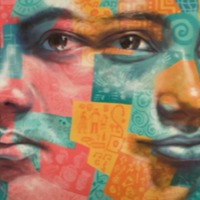
I was out grazing the cows one day when my father said it was time to get married. He said I was getting older and there was a man interested in me. A fortnight later, the elders and circumcisers were called and a big celebration planned. I was woken up early the next morning and taken outside to be circumcised. The elders said I’d been given to a man and that he was to be my husband. He was 55.
I was very confused. I was only 10. My mother tried to explain that I had to live like a woman now and not like a child. But what really worried me was knowing how my mother had suffered as a wife. She got beaten a lot in front of us, and I knew she wouldn’t be able to protect me from my new husband.
He already had two wives, and as his third I was expected to look after his goats and cows. A new hut was built for me. Nine months later, because I had still not given him a baby, he began tasking me with all the difficult jobs.
I got the first beating after I lost one of his goats. The second was when he found me resting instead of grazing the cows. The third time was because I’d run away. The next morning, after I took his goats to graze, I decided I had to escape.
I ran into the forest, but had no idea where I was going. There was nothing to eat, and at night I had to sleep in the trees to avoid the animals. After seven days, I found a homestead and was taken in by the Catholic sisters, where I met other girls who had been through the same thing.
I started school in 2013. I have four brothers and four sisters, and none of them went to school; my parents never went to school, either. I hope to be a doctor and get a job to support my family, even though my father is still angry with me for leaving my husband – he had to return all the cows he’d been given as my dowry.
Courtesy of The Guardian









